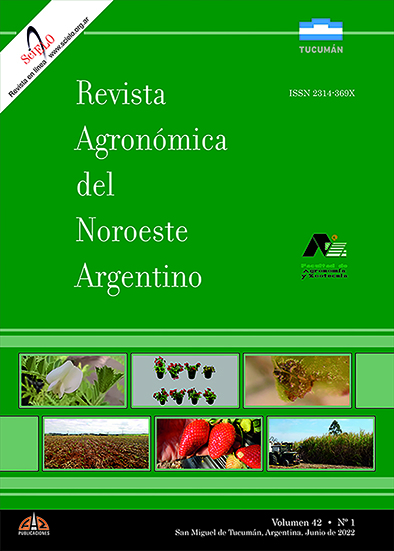Bacillus thuringiensis RZ2MS9, a tropical plant growth-promoting rhizobacterium, improves maize and soybean growth under field conditions
Keywords:
Azotobacter, Biological product, Bradyrhizobium, Grain yield, Plant growth-promoting rhizobacteriaAbstract
The insecticidal activities of Bacillus thuringiensis (Bt) are well known; however, Bt can also enhance plant development, a trait that has been less explored. The Bt RZ2MS9 has previously been shown to increase root dry weight of maize (Zea mays L.) and soybean [Glycine max (L.) Merr.] by more than 200% under greenhouse conditions. The objective of this study was to test Bt effect on these crops under field conditions. We also compared Bt performance with that of commercial inoculants developed for these crops: Azotobacter sp. (Az) AZTBR19 for maize, and Bradyrhizobium japonicum (Bj) SEMIA 5080 for soybean. Microbial inoculation was associated with different levels of nitrogen (N) fertilization in maize. Bt RZ2MS9 increased maize ear length, plant height, and ear insertion height. It also increased maize yield by 8%, while reducing N use by 30%. The inoculation with Bt RZ2MS9 increased soybean height more than Bj SEMIA 5080, and both strains increased plant mass by 29% and 39%, respectively. Under these experimental circumstances, our results confirmed the potential of using Bt RZ2MS9 as a microbial inoculant for maize and soybean cultivation in field conditions.

Downloads
Published
Issue
Section
License
Copyright (c) 2024 Revista Agronómica del Noroeste Argentino

This work is licensed under a Creative Commons Attribution-NonCommercial-ShareAlike 4.0 International License.








